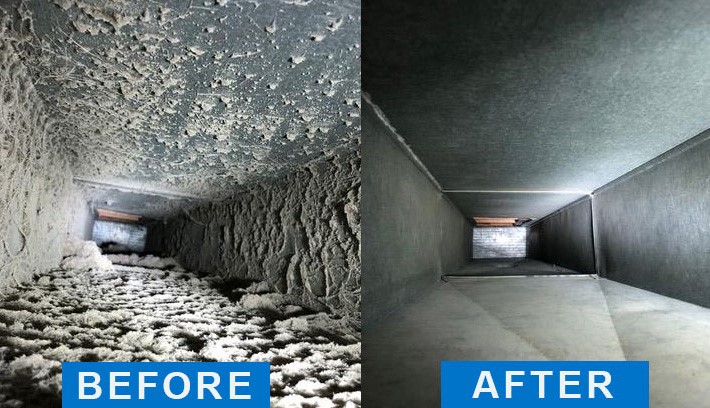In the current environment, where a lot of time is spent inside, the importance of clean air cannot be overstated. Indoor allergens and pollutants can easily accumulate in the home environment, aggravating allergies and respiratory issues for many individuals. One of the most effective ways to combat these airborne irritants is through the use of an HVAC system. Understanding how to leverage the HVAC system can lead to a significant improvement in your indoor air quality.
This article will explore useful techniques to reduce allergens using the climate control system. Whether you're a homeowner looking to enhance comfort or someone keen on understanding the basics of HVAC, you'll find insights into keeping your HVAC system in good shape, choosing the right air filters, and optimizing ventilation to create a healthier living environment. Let’s dive into how the HVAC system can function not just to provide heating and cooling, but also to ensure the air you breathe is fresh and devoid of allergens.

Understanding HVAC
Heating, Ventilation, and Air Conditioning stands for the Heating, Ventilation, and Air Conditioning, acting as critical parts of modern internal environment regulation. It works to ensure comfortable living and working environments by controlling temperature, moisture, and air cleanliness. An HVAC infrastructure can be centralized or distributed, with various configurations tailored to meet diverse types of buildings and personal needs. Comprehension of how these mechanisms function is important for property owners and businesses alike.
The heating element of an HVAC installation often consists of furnaces, heat pumps, and boilers, which work to create warm air during frigid seasons. These devices utilize various forms of energy, including power, natural gas, or oil, to generate heat and spread it in the area via ducts or heating units. Conversely, cooling devices are tasked with chilling indoor environment in hotter periods, utilizing refrigerants to capture and move heat outside.
Ventilation is another critical component of HVAC installations, as it helps ensure fresh air circulation and maintain interior air quality. This system includes both uncontrolled and mechanical methods to deliver outdoor air and remove stale air. Proper ventilation doesn't just minimizes allergens and pollutants but also prevents issues like mold growth and excessive humidity, which makes it integral to a wholesome indoor atmosphere.
Heating, Ventilation, and Air Conditioning Servicing and Efficiency
Routine maintenance is crucial to ensure your HVAC system operating efficiently. This comprises swapping air filters regularly, ideally once every 1-3 months, according to usage and the style of filter you have. A fresh filter facilitates improved airflow, which aids your system work less hard to maintain a comfortable and cozy temperature in your living space. Additionally, arranging annual expert inspections can assist detect potential issues before they turn into costly repairs, ensuring that your system operates at optimal efficiency throughout the year.
Effective ventilation also holds a key role in maintaining HVAC efficiency. Keeping vents and ducts clear of blockages permits air to flow freely throughout your home. It is essential to check and maintain your air ducts at intervals, as dirt and debris can gather over period, leading to diminished airflow and escalated energy costs. By ensuring that click resources has the necessary airflow it needs, you can enhance its efficiency and lengthen its lifespan.
Investing in regular maintenance not only boosts the efficiency of your HVAC system but can also lead to substantial savings on your energy bills. When your system is functioning effectively, it uses fewer energy to warm or chill your home. Intelligent thermostats can support this by adjusting temperature settings based on your habits and needs, further reducing energy consumption. Servicing your HVAC system with a focus on efficiency can foster a more comfortable living environment while maintaining your costs in order.
Boosting Indoor Air Standards
Enhancing indoor air quality is vital for ensuring a healthy living environment, and your HVAC unit plays a pivotal role in this process. A properly working HVAC system helps remove away pollutants such as dust, pollen, animal allergens, and additional allergens that can trigger allergies and respiratory issues. Regular servicing, including replacing filters and maintaining ducts, ensures that your system operates efficiently and properly promotes pure air circulation in your home.
Another significant aspect of improving indoor air quality is adequate ventilation. Utilizing ventilation techniques can help eliminate stale air and bring in fresh outdoor air. Modern HVAC units often come outfitted with ventilation options that automatically adjust ventilation based on indoor air quality measurements. This not just helps dilute indoor impurities but also minimizes humidity levels, which can prevent the development of mildew and mildew.
In conclusion, choosing the suitable air filters is important for filtering harmful allergens. High-Efficiency Particulate Air (HEPA) filters are crafted to trap tiny particles, making them ideal for those sensitive to allergens. Transitioning to these high-end filters can notably improve your home's indoor air quality, helping you breathe easier and promoting a more wholesome living space for you and your family.
